Do Vaccines Cause Autism?
Unraveling the Myth: Vaccines and Autism

Understanding Autism Spectrum Disorder and Vaccine Safety
The longstanding question of whether vaccines cause autism has been at the center of medical debates and public concern for decades. This article explores the scientific consensus, dissects common misconceptions, discusses the factors influencing autism risk, and emphasizes the importance of informed vaccination decisions based on rigorous research.
What is Autism Spectrum Disorder (ASD)?
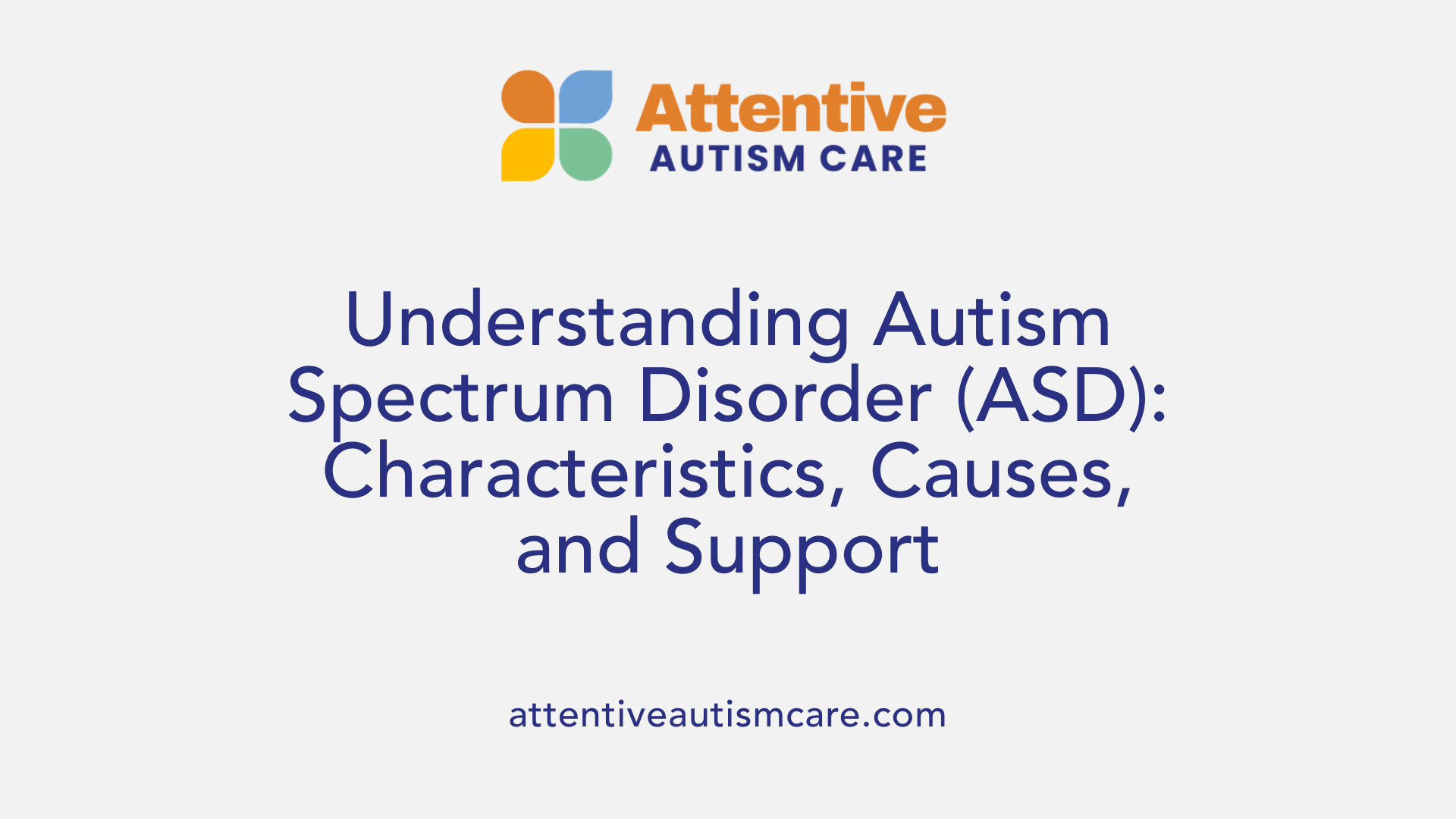
What is autism spectrum disorder (ASD)?
Autism spectrum disorder (ASD) is a complex neurodevelopmental condition that impacts how a person communicates, interacts socially, and exhibits certain behaviors. It is known for characterized challenges in social skills, including difficulties with eye contact, interpreting social cues, and developing relationships.
ASD is called a spectrum because its symptoms and their severity can vary widely among individuals. Some might experience mild difficulties, while others face significant challenges in everyday life. Importantly, no single cause has been identified for ASD. Instead, it appears to result from a combination of genetic influences and environmental factors.
While ASD is a lifelong condition, early diagnosis and supportive therapies can greatly improve an individual's ability to function and grow. These interventions help individuals leverage their unique strengths and manage challenges effectively.
It is crucial to understand that autism is not a disease and has no cure. Instead, tailored support and educational strategies enable autistic individuals to navigate their world more comfortably and confidently.
Spectrum characteristics and variability
People with ASD may display a wide range of behaviors, social abilities, and sensitivities. Some might excel in specific areas like memory or music, while others require more support in daily activities.
Genetic and environmental influences
Research suggests that genetics play a significant role, with many risk genes involved. Environmental factors, such as parental age, prenatal exposures, or birth complications, can also contribute to the likelihood of developing ASD.
Lifelong journey and support
Despite being a lifelong condition, individuals with ASD benefit from therapies, educational programs, and community support. These resources help improve communication, social skills, and overall well-being.
| Aspect | Description | Additional Details |
|---|---|---|
| Characteristics | Social communication difficulties, restricted interests, repetitive behaviors | Varies widely among individuals |
| Causes | Genetic and environmental factors | No single cause identified |
| Support | Early intervention, therapies, community resources | Enhances quality of life |
| Nature | Lifelong but manageable with support | No cure, personalized approaches needed |
Understanding ASD helps foster acceptance and ensures that individuals receive the support they need to thrive.
The Origins of the Vaccine-Autism Myth
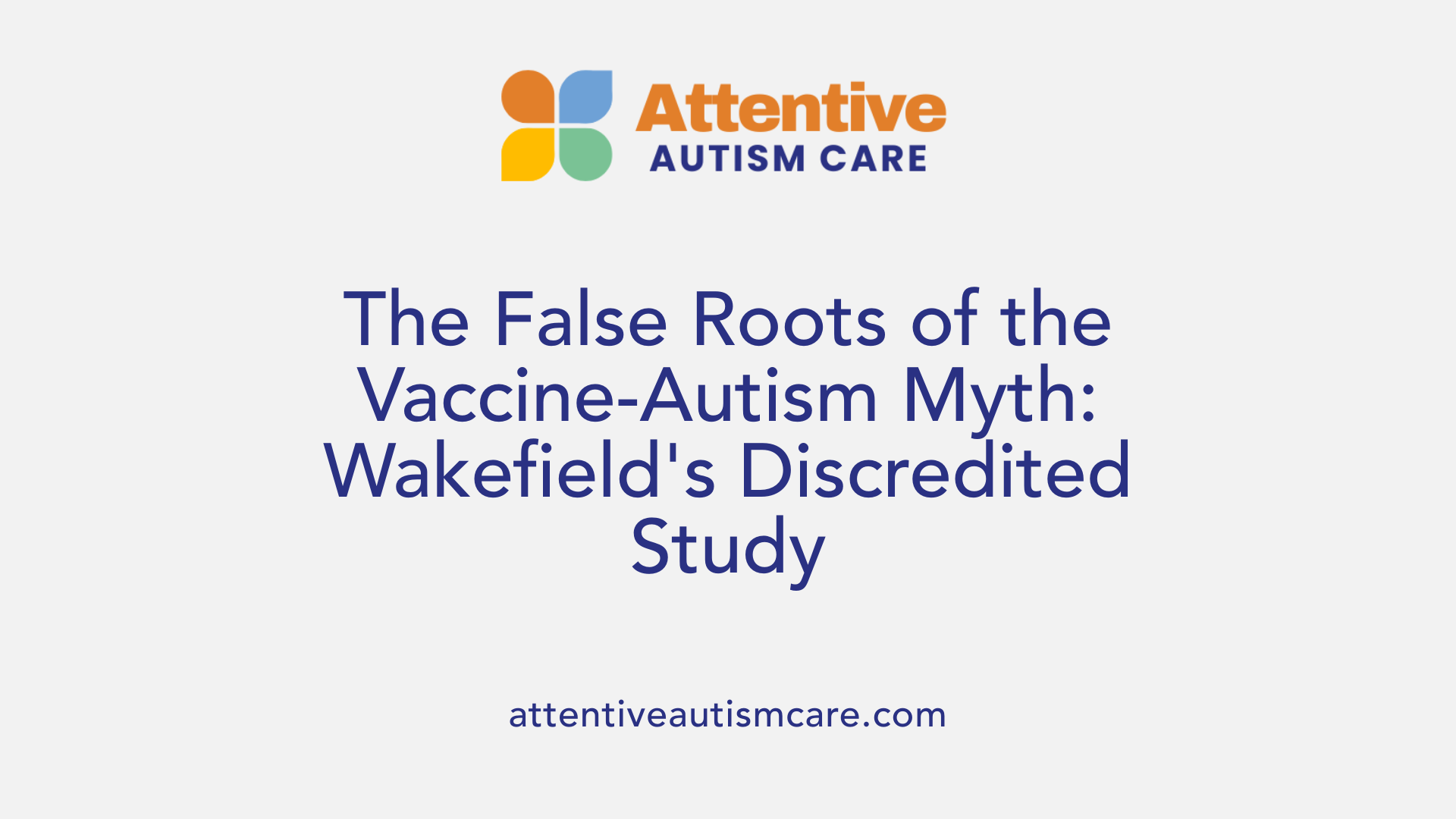
The 1998 Wakefield study and its retraction
The myth that vaccines cause autism was initially sparked by a 1998 study led by Andrew Wakefield, published in The Lancet. This study suggested a link between the MMR vaccine and autism. However, it was later discovered that Wakefield’s research was flawed and ethically questionable. Multiple investigations revealed serious methodological errors and misconduct. As a result, The Lancet retracted the paper, and Wakefield lost his medical license. Extensive subsequent research has completely discredited his findings, confirming that there is no evidence linking vaccines to autism.
The influence of early misinformation
Despite the retraction, the idea persisted. Early misinformation combined with widespread public fears contributed to ongoing skepticism about vaccine safety. Many people misunderstood scientific principles and the rigorous process behind vaccine approval. The timing of autism symptoms, which typically appear between 12 and 24 months—just after at what many children receive vaccines—also led some to mistakenly believe there was a connection. This perception was further fueled by voices outside the scientific community, creating a persistent misconception.
The role of media and public perceptions
Media coverage played a significant role in shaping public perception. Sensational stories and misreporting about the supposed vaccine-autism link spread rapidly, often without scientific validation. This helped reinforce fears and stigmatize the autistic community. Many parents, concerned about their children’s health, became vulnerable to misinformation, which is still echoed in some public debates today. However, comprehensive studies and reviews by reputable health organizations consistently affirm that vaccines are safe and do not cause autism.
| Study Focus | Sample Size | Findings | Source/Authority |
|---|---|---|---|
| Large-scale epidemiological studies | Over 95,000 to 650,000 children | No association between vaccines and autism | CDC, Institute of Medicine |
| Thimerosal and autism | Multiple CDC-funded studies | No link between thimerosal exposure and autism | CDC |
| Vaccine ingredients and ASD | Meta-analyses of over 1.2 million children | No evidence of causality | Various health agencies |
| Vaccination during pregnancy | Multiple studies | No increase in autism risk for children | CDC |
Is there a link between vaccines and autism?
There is no credible scientific evidence to support a link between vaccines and autism spectrum disorder (ASD). Extensive research, including multiple large-scale studies and reviews by health authorities like the CDC and the Institute of Medicine, has found no association between vaccine ingredients such as thimerosal or the MMR vaccine and autism. Studies have consistently shown that vaccine exposure, including during pregnancy and early childhood, does not increase the risk of ASD.
In fact, the rise in autism diagnoses over the past decades is attributed to broader diagnostic criteria and heightened awareness, not vaccination. Vaccines are proven safe, effective, and crucial for preventing serious diseases. The persistent belief in their link to autism is thoroughly refuted by decades of rigorous science and large-scale research. Overall, vaccination remains a cornerstone of public health, with no credible link to autism.
Scientific Evidence Disproving a Link Between Vaccines and Autism
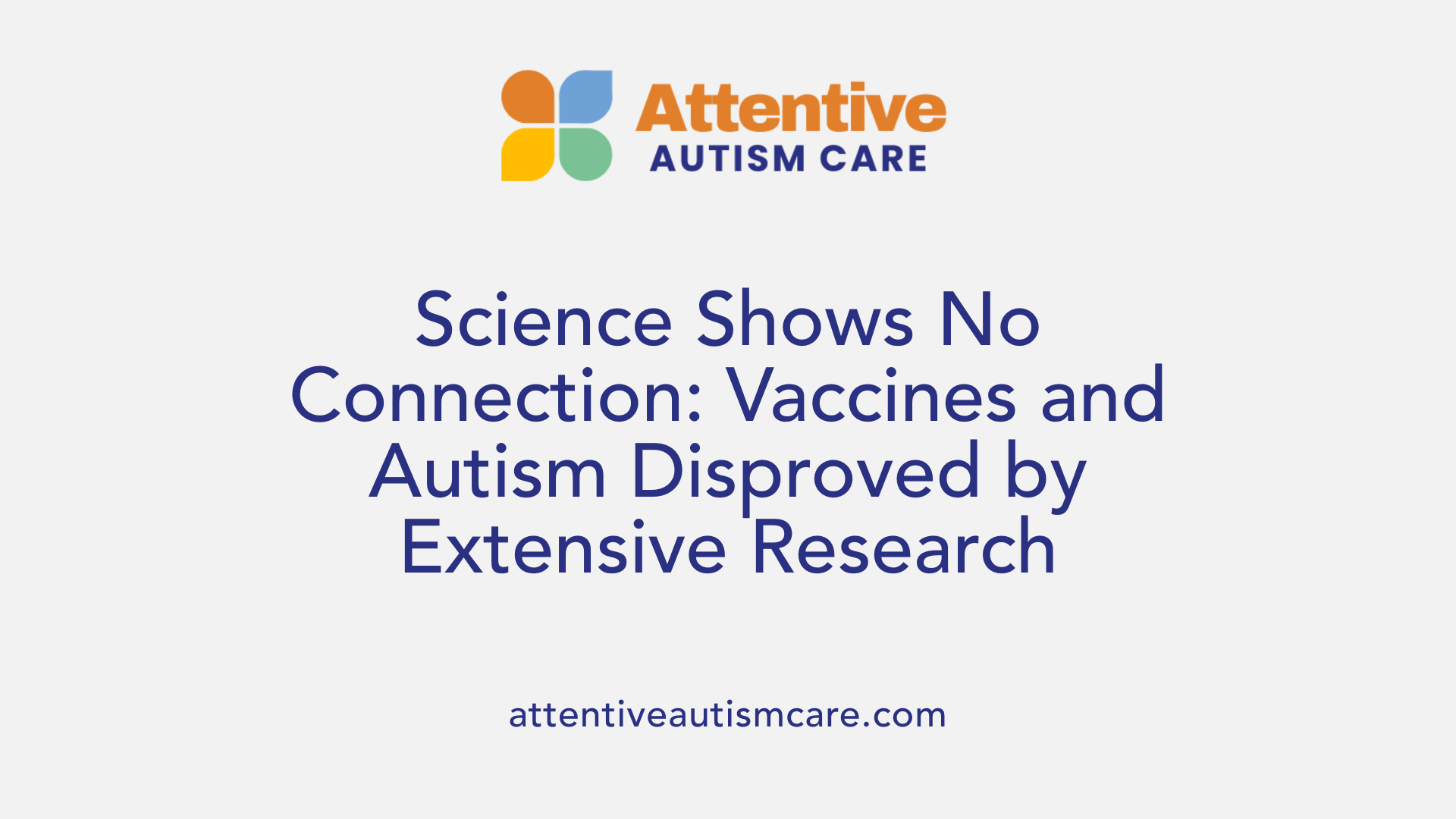
What are the major studies and their findings?
Over the years, numerous large-scale epidemiological studies have been conducted to examine the potential link between vaccines and autism. These studies collectively analyze data from hundreds of thousands of children, including sample sizes from over 95,000 to more than 650,000 participants. The consistent finding across these investigations is that there is no evidence to suggest that vaccines, including the MMR (measles, mumps, rubella) vaccine or vaccines containing thimerosal, increase the risk of autism spectrum disorder (ASD).
Many of these studies specifically looked at the timing of vaccines and autism diagnosis, which often occur around the same age. Despite this overlap, research has shown that this is coincidental rather than causal. For example, research funded by the CDC and other reputable organizations found no increased risk of ASD associated with thimerosal, a mercury-based preservative once common in vaccines.
What does the meta-analyses and review of research conclude?
Meta-analyses combine data from multiple studies to provide a comprehensive overview of the evidence. An extensive review of over 1.2 million children across various studies concluded that vaccines are not linked to autism. These reviews scrutinize data on different vaccine ingredients and schedules and consistently find no association.
Authors of these meta-analyses emphasize the importance of rigorous scientific methods in deriving conclusions. Their findings reinforce the overall consensus: vaccination does not cause autism.
What is the importance of study design and scientific rigor?
The reliability of scientific findings heavily depends on study design. Proper research includes control groups, appropriate sample sizes, and careful consideration of confounding factors—variables that can bias results.
Some studies claiming a link between vaccines and autism used flawed methodologies, such as comparing vaccinated children to unvaccinated ones without controlling for other variables. These types of studies can produce misleading results. Conversely, well-designed research accounts for such confounding factors, providing stronger, more trustworthy evidence.
The scientific community stresses that conclusions about vaccine safety must be based on studies that adhere to high standards of rigor and transparency.
How was the Wakefield study discredited?
The initial claim that vaccines caused autism originated from a 1998 paper by Andrew Wakefield published in The Lancet. This study suggested a connection between the MMR vaccine and autism. However, it was later revealed that the study suffered from serious methodological flaws, bias, and misconduct.
Investigations uncovered conflicts of interest, data manipulation, and ethical violations, leading to the paper's retraction by The Lancet in 2010. Wakefield lost his medical license, and subsequent research by independent scientists has failed to replicate his findings.
So, the scientific consensus was reaffirmed: the original Wakefield study was flawed, and its claims were discredited. Large, well-conducted subsequent research has decisively shown that vaccines do not cause autism.
| Study Type | Sample Size | Main Findings | Limitations/Notes |
|---|---|---|---|
| Epidemiological studies | 95,000+ to 650,000 children | No association between vaccines and autism | Large, diverse populations; robust controls |
| Meta-analyses | Over 1.2 million children | No link between vaccines (including thimerosal) and autism | Combined data for comprehensive analysis |
| Wakefield's study (retracted) | 12 children | Suggested vaccine-autism link (discredited) | Flawed methodology, ethical violations, retracted by journal |
What is the most common genetic cause of autism?
The most prevalent genetic factor associated with autism is Fragile X syndrome. It is an inherited mutation in the FMR1 gene on the X chromosome. About 30-60% of individuals with Fragile X syndrome exhibit behaviors that overlap with autism, such as social communication challenges, repetitive behaviors, and sensitivities.
While not all with Fragile X develop autism, this condition is considered the most common inherited cause. Early diagnosis can help in managing cognitive and behavioral issues associated with both Fragile X and autism spectrum disorders.
In summary, extensive research consistently confirms that vaccines are safe and do not cause autism. Scientific studies, reviews, and meta-analyses reinforce that the initial claims linking vaccines to autism have been thoroughly discredited.
Environmental and Genetic Factors Influencing Autism
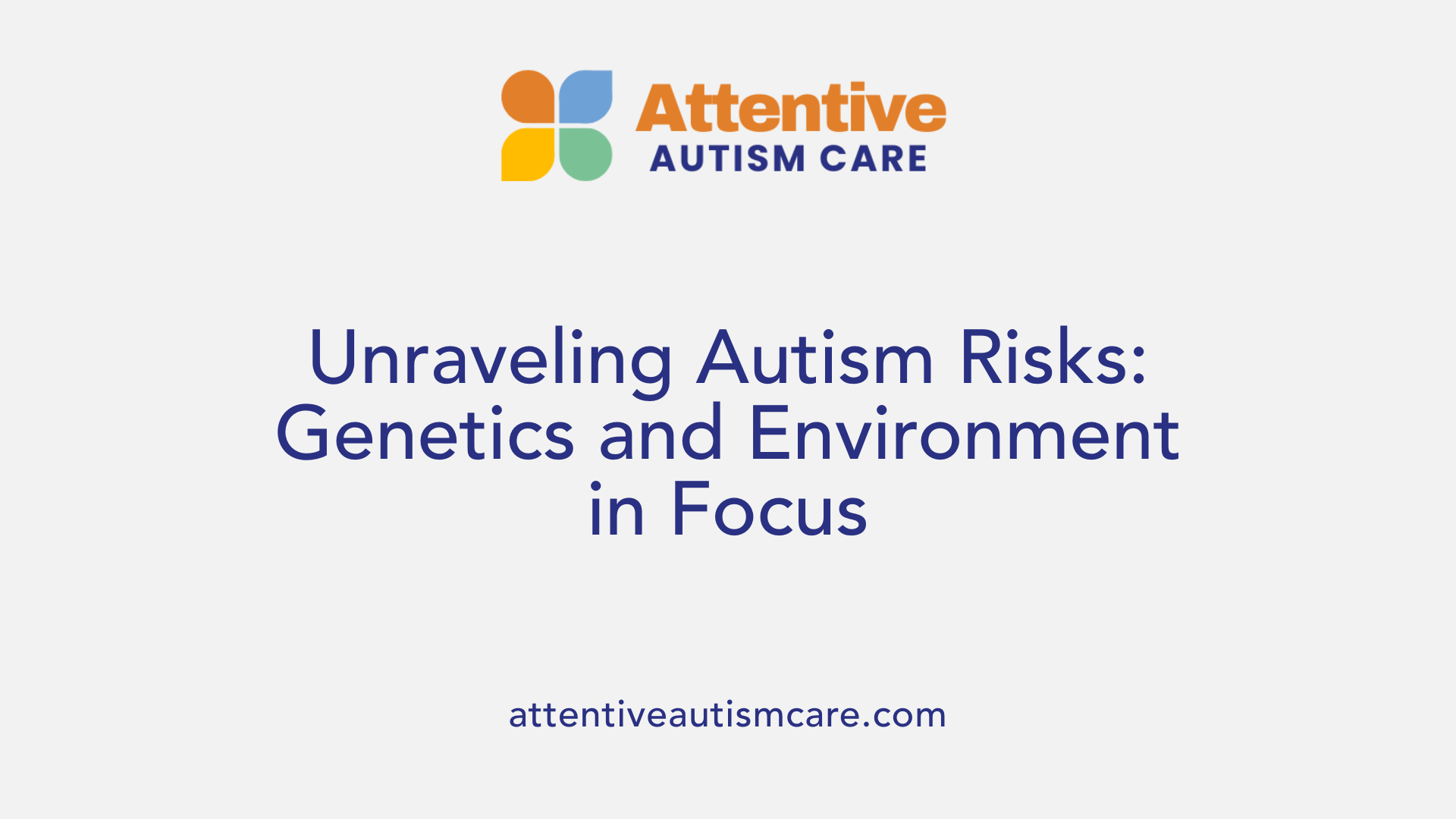
What are the potential risk factors that may lead to autism?
Autism spectrum disorder (ASD) appears to develop from a combination of genetic and environmental influences. Genetic contributions are significant, with research identifying numerous gene mutations and variations that increase susceptibility to autism. These genetic factors often influence how neurons communicate in the brain and can affect gene expression related to neural development. A family history of ASD also raises the likelihood of diagnosis.
Environmental factors can also play a crucial role. Studies have linked prenatal exposure to air pollution, pesticides, and heavy metals such as lead to increased autism risk. Chemicals like bisphenol A (BPA) and phthalates, commonly found in plastics and household products, are under scientific scrutiny for possible effects on neurodevelopment.
Maternal health during pregnancy is another influential factor. Conditions such as obesity, diabetes, and immune system disorders have been associated with a higher chance of autism. Fever and immune responses during pregnancy might also impact fetal development.
Child-related factors are important as well. Extreme prematurity and very low birth weight are linked to greater autism risks. Birth complications that result in oxygen deprivation have similarly been associated with increased likelihood of ASD.
Overall, evidence points to a complex interaction where genetic predispositions combined with environmental exposures influence the development of autism. While much is still being researched, current scientific understanding emphasizes the multifaceted nature of ASD risk factors.
| Risk Factors | Description | Example/Additional Details |
|---|---|---|
| Genetic Mutations & Variations | Changes in DNA that influence neural connections | Family history of ASD, gene mutations |
| Prenatal Environmental Toxins | Exposure to harmful substances during pregnancy | Air pollution, pesticides, heavy metals |
| Maternal Health Conditions | Pregnancy-related health issues possibly affecting fetal development | Obesity, diabetes, immune disorders |
| Birth and Early Life Factors | Conditions at birth or early childhood that influence ASD risk | Prematurity, low birth weight, birth complications |
This comprehensive view underscores that autism is not caused by any single factor but results from an intricate mix of genetics and environment. Continued research is essential to better understand these dynamics and to support intervention strategies.
The Importance of Informed Vaccination Decisions and Addressing Vaccine Hesitancy
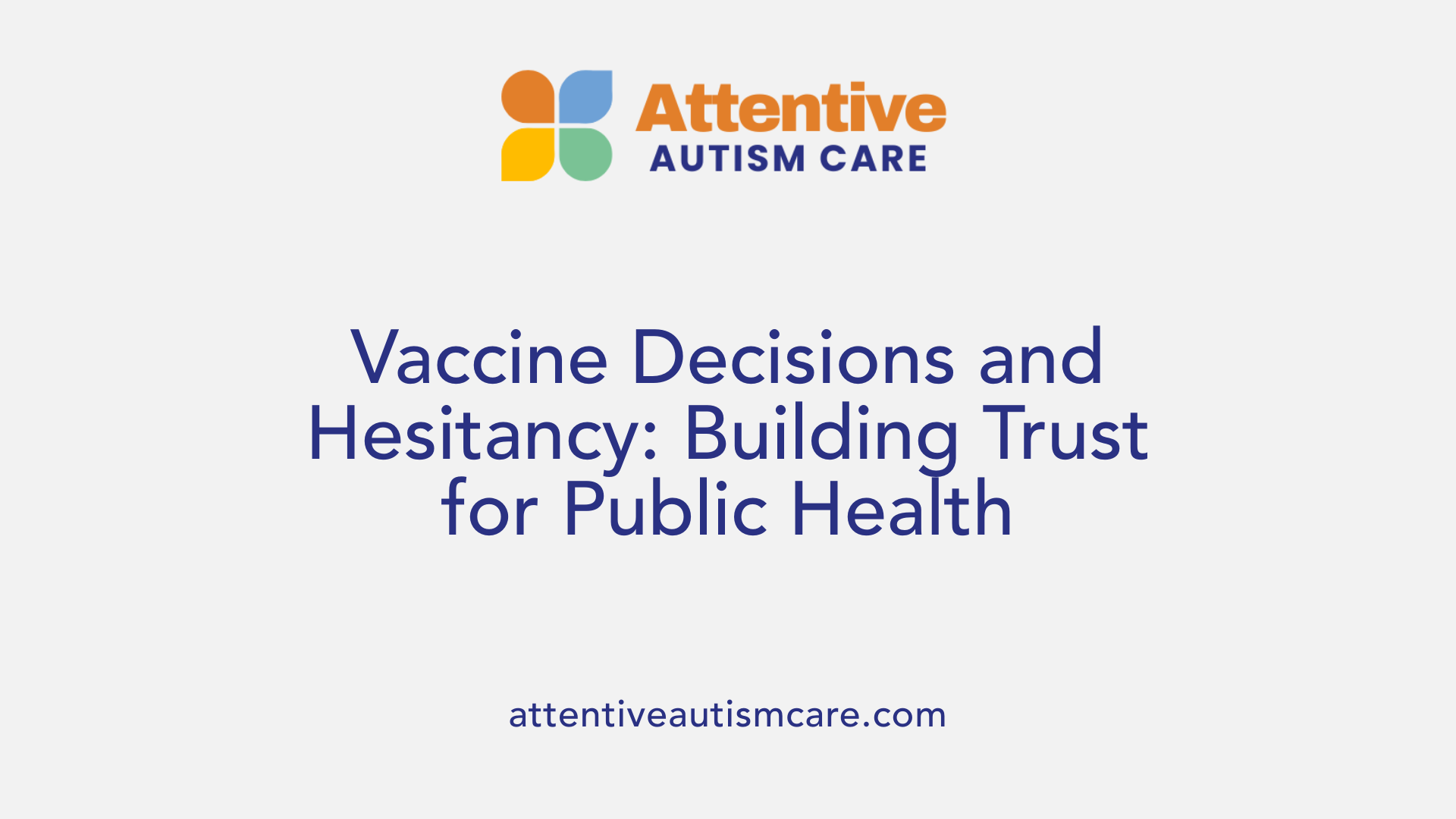
Why do some parents refuse vaccines?
Many parents choose to refuse or delay vaccinating their children for various reasons. A significant factor is religious objections, which often stem from concerns about certain vaccine ingredients, such as animal-derived components or human fetal tissue. Personal and philosophical beliefs also play a role; some parents believe that natural immunity acquired through infection is better than vaccine-acquired immunity.
Others perceive infectious diseases as no longer a serious threat due to their decreased prevalence, leading to complacency about vaccination. Safety concerns are another common reason, often fueled by misinformation and media reports emphasizing alleged side effects or questionable ingredients. Persistent myths about vaccines causing autism have contributed to hesitation, despite extensive scientific evidence proving the lack of any link.
Furthermore, many parents seek more information and trust in healthcare professionals. When communication is inadequate or misinformation spreads swiftly via social media and other channels, doubts increase. Overall, vaccine refusal results from a mix of religious and personal beliefs, safety fears, and a desire for better understanding and reassurance from trusted health sources.
How does misinformation and media influence vaccine perceptions?
Media coverage and misinformation significantly shape public opinion about vaccines. Sensational stories or unverified claims about vaccine dangers circulate rapidly online, reinforcing fears and misconceptions.
This can lead to decreased vaccination rates and increased outbreaks of preventable diseases. Despite the strong scientific consensus on vaccine safety, false reports, often lacking credible evidence, distort facts and create confusion.
The media's role is crucial—responsible and accurate reporting can help clarify misunderstandings. Conversely, sensationalism and sensational stories about supposed vaccine risks contribute to hesitancy, especially among parents who are not well-versed in scientific research.
What role do healthcare providers play in education?
Healthcare professionals are essential in guiding vaccination decisions. Their role includes providing clear, evidence-based information about vaccine safety and addressing concerns compassionately.
Building trust through open communication can help parents understand that extensive research confirms vaccines are safe, effective, and critical for public health. Providers should also discuss the extensive research disproving links to autism or other health issues, explaining how vaccines are thoroughly tested and monitored.
Furthermore, healthcare providers can tailor their messages to cultural and individual values, making vaccination information more accessible and convincing. This proactive engagement helps counteract misinformation and reassures parents about the safety and importance of vaccines.
What are the broader societal implications?
Vaccine hesitancy and refusal have broader societal impacts. When immunization rates drop, herd immunity weakens, increasing the risk of outbreaks of diseases like measles, mumps, and rubella. This not only endangers vulnerable populations, such as infants and immunocompromised individuals, but also strains healthcare systems.
Public health depends on high vaccination coverage to protect entire communities. Misunderstandings and misinformation, if unaddressed, can undermine decades of progress in controlling infectious diseases. Promoting accurate information and fostering trust between the public and health professionals are vital to maintaining high immunization rates and safeguarding societal health.
| Aspect | Explanation | Impact |
|---|---|---|
| Reasons for vaccine refusal | Religious beliefs, safety concerns, misinformation | Lower vaccination rates |
| Influence of media | Sensational stories, misinformation online | Increased hesitancy |
| Healthcare role | Education, reassurance, trustworthy communication | Improved vaccine acceptance |
| Societal effects | Outbreaks, lower herd immunity | Public health risks |
Understanding these factors underscores the importance of informed, transparent communication about vaccines. Addressing concerns thoughtfully can help foster trust and ensure higher vaccination coverage, protecting everyone from preventable diseases.
Reinforcing the Scientific Consensus and Promoting Informed Choices
The overwhelming body of scientific evidence and consistent research findings confirm that vaccines do not cause autism. Public health authorities worldwide agree on the safety and importance of vaccines in disease prevention. Addressing misconceptions, communicating transparently with the public, and ensuring trust in healthcare providers are crucial to maintaining high vaccination rates. Educating about the genetic and environmental factors contributing to autism can help demystify the condition and reduce unwarranted fears. Ultimately, making informed vaccination decisions based on credible scientific data protects individual and community health, helping us move beyond myths to a healthier future.
References
- The Evidence on Vaccines and Autism | Johns Hopkins
- Do vaccines cause autism? - Autism Speaks
- Autism and Vaccines - CDC
- Frequently Asked Questions about Autism Spectrum Disorder - CDC
- Here is how we know that vaccines do not cause autism - Stat News
- Fact Checked: Vaccines: Safe and Effective, No Link to Autism - AAP
- Is There a Connection Between Vaccines and Autism? - Kids Health




































































































